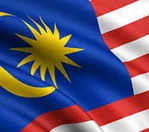BEYOND FLAG WAVING: The big task of land conservation and restoration is a cause powerful enough to unite us
FROM primary school we were thought to show dignity and respect when singing our national anthem Negaraku. Just like the flag, it is a significant national symbol. It is also an expression of our national identity, a musical badge serving as a vessel of nationalism.
If we try to make sense of the lyrics, we would have noticed the word “land” immediately follows the charismatic opening “my country”. Land evokes a powerful meaning in the period leading to the formation of Malaya and Malaysia. Back then the plural society had a close relationship with land and soil through agriculture.
The Iban of Sarawak are known for cultivating hill rice for centuries. The Kadazandusun in Sabah and their subgroups are also traditional rice-farming communities. In Kudat, Sabah, the Hakka communities started to grow maize, vegetables, and coffee as early as the 1900s. At about the same time in Sarawak, Charles Brooke sponsored the Foochow rice farmers to settle permanently mainly along the Rejang Basin.
In the peninsula, rice cultivation has been almost exclusively in Malay hands. For the Orang Asli, the forest land was at once a space for foraging and swidden agriculture. Contract workers from India supported Malaya’s rubber boom in the 1900s. Perhaps less known is the role of Chinese as farmers who planted quick-return crops such pepper, sugar, tapioca and gambier.
Working the soil embodies a rural way of life, an agrarian value that transcends economics. To the Iban, rice seeds possess spiritual souls. Rites are performed at each stage of the rice cultivation cycle to seek the blessing of Simpulang Gana, a deity of the soil. Other indigenous ethnic groups also perform rituals to ensure a good harvest, and to maintain a harmony between man and the environment. In pre-colonial Malaya and Borneo, rice served as currency to pay for labour and to sponsor harvest festivals. On a social level, therefore, the ownership of agricultural land acts as a source of prestige and a symbol of wealth.
With colonisation the interest in land was restricted to only those attributes that gave immediate economic value. A central idea then was on the productive possibilities of large estates. The Malayan plantation economy grew significantly within decades driven by the British trade policy.
With this export orientation, however, food began to be imported, causing land to lose its sociocultural meaning in the hearts and minds of citizens. When Malaysia’s economy started to rely more on manufacturing and services sector, we no longer believed that a country’s economic well-being is inevitably tied to the productive capacity of the land.
The process of detachment to land is by no means a situation unique to Malaysia. Following the Second World War, land is treated like any other commodity or factor of production by virtually all countries. This means neglecting the unique services land provides, which are not traded in markets. But in the 1950s, the crisis of our environment was a nightmare of the imagination, and nothing more.
Few decades later, the environment crisis loomed large, pushing land back to the attention of a large audience, including politicians. Former British Environment Secretary John Gummer once famously said “We are rich because we pollute”.
Malaysia too is on its way to become a rich country. But 57 years after Independence, the stewardship of our land is in a sorry state of affair. The rivers that flow on our land are mostly polluted. This is not only a source of national embarrassment but we suffer from water shortages as a result. Our land is also covered by mountains of improperly disposed household garbage while construction waste contributes to the increasing dengue cases in the country. Parts of our land are also on fire because we are unable to prosecute culprits indifferent to the ban on open burning.
As we once again hymn Negaraku to remember the time in history when we fulfilled our self-determination as a nation, the Merdeka celebration is also an occasion to envision our survival as a nation. Beyond the moment of passionate flag waving, patriotism also means taking care of the land that our forefathers had fought for. Undoubtedly, the big task of land conservation and restoration is a cause powerful enough to unite us.
Article by Dr Hezri Adnan which appeared
in The New Straits Times, 2 September 2014.





